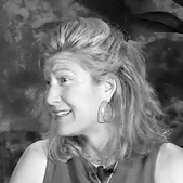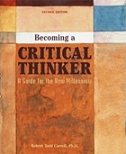From Abracadabra to Zombies
Skeptimedia
Skeptimedia is a commentary on mass media treatment of issues concerning science, the paranormal, and the supernatural.
Skeptimedia replaces Mass Media Funk and Mass Media Bunk. Those blogs are now archived.
Crazy Therapies & Psychic Kids
If a man doesn't know how to measure and is told by a crowd equally ignorant that he is six feet tall, how can you expect him not to believe it? --Plato, The Republic
June 26, 2008. In their classic
exposé of
crazy therapies,
Singer and Lalich give several reasons you should not trust a
therapist. Here's one more to add to the list: Do not trust
your therapist—regardless of his or
her reputation, fame, diplomas, certificates, or number of
appearances on Oprah or Larry King—if
he or she encourages a child's delusion of being psychic.
Following this rule, no one in his right mind should trust
Dr. Lisa J. Miller, Associate Professor of Psychology and
Education at Teachers College, Columbia University. Miller is a
co-host of A&E's new program
Psychic Kids: Children of the Paranormal. The other host
is Chip Coffey, who
bills himself as a psychic and a
medium. Coffey's greatest claim to
fame is that he appeared in another A&E paranormal pandering
effort called Paranormal State, which features the
ghostbusting investigations of some critical thinking-challenged
college students from Penn State University.
and
Education at Teachers College, Columbia University. Miller is a
co-host of A&E's new program
Psychic Kids: Children of the Paranormal. The other host
is Chip Coffey, who
bills himself as a psychic and a
medium. Coffey's greatest claim to
fame is that he appeared in another A&E paranormal pandering
effort called Paranormal State, which features the
ghostbusting investigations of some critical thinking-challenged
college students from Penn State University.
A&E is calling this latest contribution to American psychophilia a documentary. Miller, for her part, says she participated in the A&E series because “this is an opportunity to share more broadly with our culture the psychic experiences of children and to understand what their experience says about our own daily lived reality." Sure it does. Except that Miller believes the kids really are psychic and that their fantasies have nothing to do with the fact that they are growing up in a culture that largely loves psychics, mediums, and all things paranormal and largely despises anyone who dampens the hope for reunion with dead loved ones by applying a little science and critical thinking to the wishful thinking and self-deception of these spiritmongers.
“Often children are quite depressed," says Dr. Miller, "and confused by their experiences – not by the experience itself, but by the feedback they’ve gotten, whether in their own families or in the school setting."
What I’m concerned about is that clients who come in with psychic experiences are wrongly diagnosed as being psychotic. The child with the psychic experience is a healthy child who has relationships, feels healthy, makes eye contact, and whose emotions are both fluid and regulated. The psychotic child, sadly and painfully, is coming unraveled in many ways, including having a distorted sense of emotions, difficulty connecting with other people and a very challenged sense of getting along in the world.
In my world, we call this a false dichotomy. Miller reasons: the child who experiences seeing dead people is either psychic or psychotic; she's not psychotic; therefore, she's psychic. There may be another option, Dr. Miller. Maybe the child is growing up in a culture where the media treat characters like Sylvia Browne, John Edward, James Van Praagh, and a host of other spiritmongers as celebrities who know what they are talking about when they claim to get clipped messages from dead pets or grandmas. Maybe the child's fantasies and delusions are induced in her mind the same way that fantasies and delusions about virgin births and resurrections are induced: communal reinforcement. Maybe the child wouldn't have fantasies and delusions about visits from dead people if so many adults in the child's world, especially adults who are therapists, didn't also have fantasies and delusions about visits from dead people.
Miller says that she's just trying to help kids learn how to deal with their psychic abilities. “The goal is to bring families with psychic kids closer together and help them understand their experiences have meaning.” Of course they have meaning, but Miller thinks they have some sort of spiritual meaning. Why? Well, her specialty is religion and spirituality in psychotherapy and their relation to substance abuse in adolescents. (In a shocking discovery, she found that children who are spiritual tend to have fewer problems with substance abuse.) How could we expect someone who takes religious delusions as reality to provide insight into the fantasies of children who see dead people? Miller thinks we are deficient as a culture because we don't follow the example of advanced spiritual societies like China and Mexico. She thinks it is a good thing that those cultures embrace experiences such as visits from ancestor spirits. She thinks people derive important psychological benefits from these "visits." Here in the U.S., however, Miller laments that such experiences “are not supported by a system of meaning or an understanding of reality that’s widespread in our culture.”
As someone once said: one person's reality is another's fantasy and one person's fantasy is another's reality. Someday, I hope, we'll live in a world where we'll be able to tell the difference. But as long as a significant number of people have a need for connection with the world of the dead that is so strong that it drives them to institutions that cater to "spiritual" fantasies, expect more Lisa Millers to get tenure at major universities and expect more "documentaries" like "Psychic Kids."
* AmeriCares *


